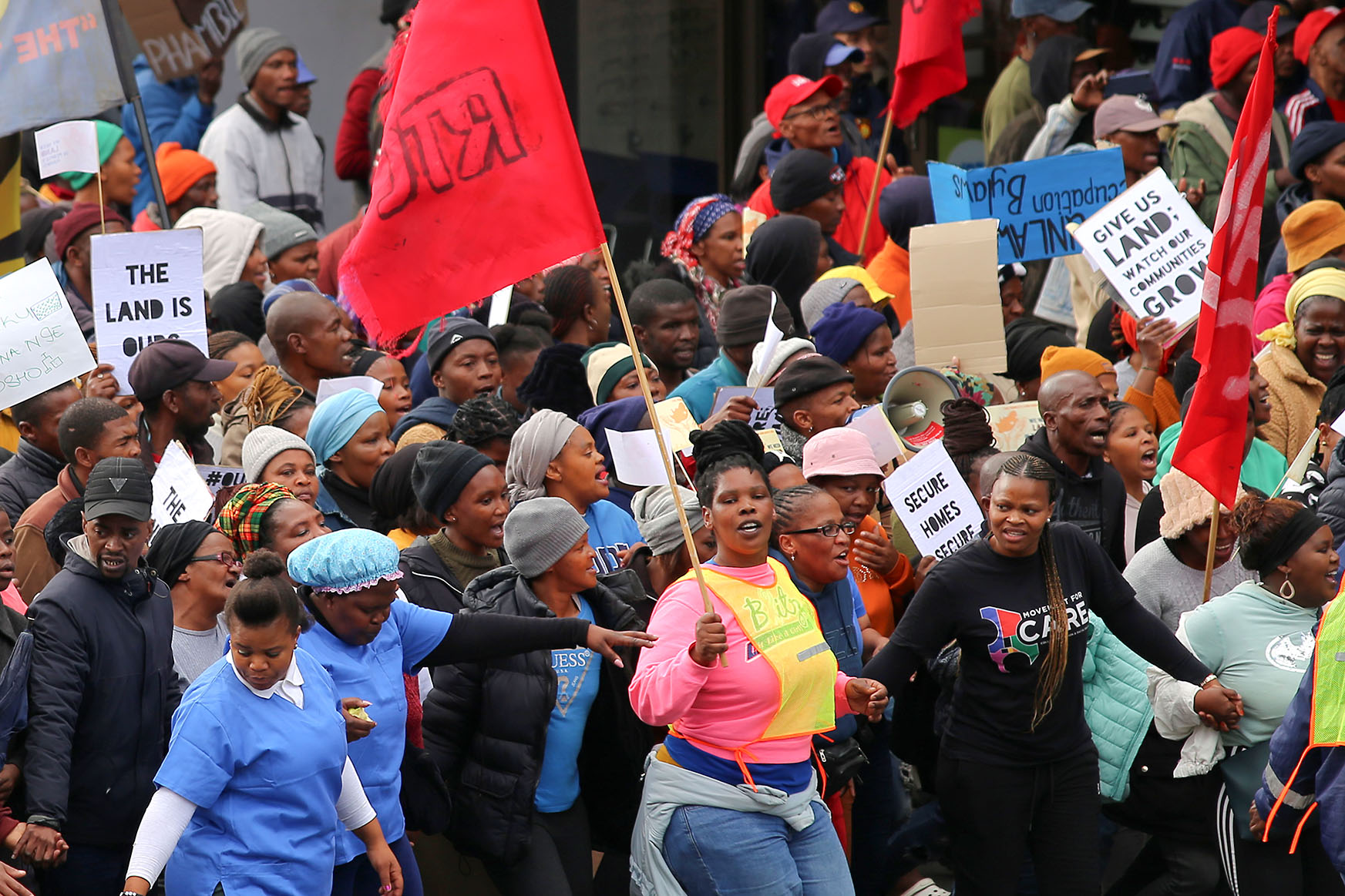Quite often, when someone hits me with the phrase “and another thing”, I’m actually not quite sure what the first thing was. But anyway.
So, on to the topic: the Expropriation Act 13 of 2024. I’ve argued this point before: I think the legislation is just awful, and I think liberal South Africans are going to regret defending it. It’s part of a raft of new legislation aimed at intensifying the ANC’s interventionism — because its existing interventions have worked so fabulously, the solution is obviously to make them even more intrusive. They didn’t work not because they were intrusive, but because they weren’t intrusive enough — that’s the logic anyway. These measures are justified under the rubric of “transformation”, and they will bring about transformation — just not the transformation the ANC expects. They are going to make things worse, which is what interventionist legislation invariably does.
But we’ve been there, done that. So, what is “and another thing” in this particular case?
The other thing is that, in my opinion, the entire argument about the Expropriation Act is misconceived. At the moment, the debate is pitched as a grand battle between transformation-dedicated left-wing politicians and conservative right-wing farmers. The farmers argue that the legislation is aimed at taking away their farms without paying market price. The politicians argue that the farmers are either being paranoid — because the legislation has safeguards — or that they are simply anti-transformation.
This framing is wrong, because the people who are going to suffer the most under the new legislation are poor people, not rich people. How do I get there? Well, for a start, it’s because expropriation always hurts the poor more than it hurts the rich. And because expropriation has, in fact, in South Africa, hurt the poor more than the rich in the past.
One thing I think many don’t realise about expropriation is just how many government departments are allowed to do it. The Expropriation Act 63 of 1975 granted expropriation powers primarily to the Minister of Public Works. But it also allowed for expropriation by a whole bunch of other authorities under specific conditions.
The largest group of these are municipalities, under the Municipal Systems Act and the Municipal Finance Management Act (MFMA). Then there are a range of statutory bodies that have specific enabling legislation — including Sanral under the National Roads Act for road development, Eskom for electricity infrastructure, Transnet for rail and port infrastructure, the water boards and the Land Bank. Separately, the Minister of Agriculture can expropriate under the Restitution of Land Rights Act (1994) to implement land restitution orders.
To put it bluntly: the power to expropriate is actually very widely distributed — much more so than most people imagine.
So, does the new “improved” legislation reduce this group to regularise the process, as promised, because it’s an “improvement” on the old legislation? Not so much. The Act defines an “expropriating authority” as “an organ of state or a person empowered by this Act or any other law to expropriate property”. In other words, the extent of the power to expropriate is vested in all the groups that had it before — and more, because provincial authorities, who were not included in the 1975 Act, are explicitly included in the 2024 Act.
So, why will it hurt poor, black South Africans more than rich, white South Africans? The reason is simple: in order to trigger all of the bureaucratic procedures designed to mediate state power, you have to have a pre-existing right to defend. But the history of South Africa means that vast numbers of township dwellers don’t have clear freehold rights to their houses, and rural dwellers don’t have clear rights over rural land, because it’s notionally vested in tribal authorities.
For practical purposes, defending your ownership rights — even for RDP houses — is much more difficult for township and rural dwellers than farmers who might want to prevent the expropriation of land that’s registered in a deeds registry. Why? Because the state has a vested right in RDP houses — a little-known fact — which only transfers, in most cases, eight years after handover.
If you think about it, it was only ever possible to enact the 1913 Natives Land Act because those being deprived didn’t have freehold rights. And yet, two of the major political parties — MK and the EFF — specifically don’t want their constituents, or anyone, to have freehold rights. They want all the land vested in the state.
It’s crazy. DM
Business Maverick
After the Bell: And another thing — how the Expropriation Act will hurt the people it claims to help
What is the most satisfying moment in an argument? For me — and I suspect for many other people — it’s when you can just throw out the phrase “and another thing”. And when someone says “and another thing”, it’s never another good thing.





